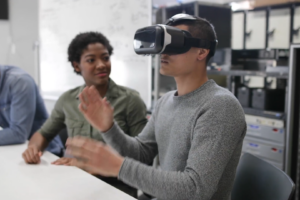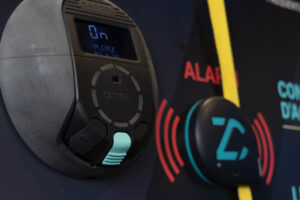
VALSUCANEM: New green composite materials from the valorisation of hemp by-products
September 12, 2024
EpiGe-App: An algorithm that facilitates the diagnosis of medulloblastoma
September 30, 202425/09/2024
Barcelona is characterised by a high consumption of bottled water (55% of the population drinks it regularly). The reasons for this behaviour tend to be dissatisfaction with the organoleptic characteristics, perceived health risks and distrust of the quality of tap water.
The consumption of bottled water generates a large amount of plastic waste, which is increasing exponentially globally and is responsible for a high impact on the environment. On the one hand, plastic production processes generate depletion of non-renewable resources and emissions of pollutants (greenhouse gases and particulate matter). On the other hand, the presence of plastic waste is currently considered the most serious problem affecting the marine environment. The accumulation and fragmentation of plastics contribute to the presence of microplastics as emerging pollutants in the food chain and in the water cycle, including drinking water.
In this context, the objective of the BWater project, coordinated by the Environmental Engineering and Microbiology Group (GEMMA) of the Polytechnic University of Catalonia - BarcelonaTech (UPC), has been to analyse and compare the health impacts, environmental impacts and socio-economic impacts associated with different drinking water consumption options in the city of Barcelona.
In the framework of this project, the following water alternatives for human consumption have been analysed and compared: tap water, bottled mineral water (PET bottle), tap water filtered with domestic reverse osmosis devices, and tap water filtered with domestic activated carbon devices.
A software (BWater Software) has also been developed, that allows to calculate the health, environmental, social and economic impacts of the four drinking water consumption alternatives per person, per household and for the whole population of Barcelona. With BWater, each user/consumer/citizen can enter some data (district where they live, number of people they live with, types and quantity of water they normally consume for drinking) and obtain the impacts generated by their drinking water option. The software itself compares the four alternatives with each other.
To quantify the impacts of the different drinking water consumption options, different methodologies have been used according to life cycle (from raw material extraction to waste disposal), social life cycle (according to stakeholders: workers, consumers), economics (associated costs), and health (analysing exposure to trihalomethane and nitrate concentrations given water consumption, and their relationship with bladder and colorectal cancer, respectively).
To analyse the overall sustainability of drinking water options, a multi-criteria analysis (health, environmental and socio-economic impacts) was also developed, from which a single sustainability index was derived.
The results of the project according to the type of impact were:
- The environmental impact of bottled mineral water (PET bottles) is up to 4,000 times higher than the impact of tap water and tap water treated with domestic equipment. In addition, the carbon footprint of bottled mineral water (PET bottles) is 100 to 600 times higher than that of tap water and tap water treated with domestic equipment.
- Consuming tap water is the alternative that has the most socially positive impacts in relation to all stakeholders analysed (workers, consumers, suppliers, local community and society at large). The use of household devices does not enhance the social benefits of tap water consumption.
- Consuming tap water is approximately 110 times cheaper than consuming bottled mineral water and up to 35 times cheaper than consuming tap water filtered with household devices.
- The reduction of nitrate in drinking water through the use of domestic treatment equipment means that, if the entire population in Barcelona consumed this type of water, the loss of disability-adjusted life years due to colorectal cancer would decrease by up to 83% compared to the current scenario.
The reduction of trihalomethanes in drinking water through the use of domestic treatment equipment means that, if the entire population in Barcelona consumed this type of water, the disability-adjusted life-years lost due to bladder cancer would decrease by up to 92% compared to the current scenario. - Sustainability: Tap water represents the most sustainable option for drinking water consumption, followed by the alternatives of tap water consumption treated with domestic devices (activated carbon filters and domestic reverse osmosis equipment).
Budget and funding
The project is funded by Barcelona City Council and the ‘la Caixa’ Foundation within the framework of the Barcelona Science Plan 2020-2023 - Project BWater 22S07285-001 with a budget of 81,656 €. The Barcelona Institute for Global Health (ISGlobal) and the Spanish Water Technology Platform (PTEA) are also participating. The project implementation period has been from December 2022 to June 2024.
Sector
You want to know more?
Related Projects
- The Visualisation, Virtual Reality and Graphic Interaction Research Group (ViRVIG) at the Universitat Politècnica de Catalunya - BarcelonaTech (UPC) has participated in the XR4ED project, an initiative that connects the educational technology (EdTech) and Extended Reality (XR) sectors, with the aim of transforming learning and training across Europe.
- The inLab FIB at the UPC has collaborated with Lizcore® for the development of a proof of concept based on artificial intelligence to improve safety in climbing with autobelay devices. The system allows the automatic and accurate detection of risk situations before starting a route.
- Researchers from the Centre for Image and Multimedia Technology of the UPC (CITM) and from the DiCode research group (Digital Culture and Creative Technologies Research Group) of the Universitat Politècnica de Catalunya – BarcelonaTech (UPC) have worked on the project The Eyes of History, an initiative of the Catalan Agency for Cultural Heritage that offers an immersive view of Catalan cultural heritage. It is especially aimed at the first and second cycles of secondary education and was created to bring heritage into the classroom. Its goal is to bring the history and monuments of Catalonia closer in a vivid and innovative way, using tools such as virtual reality and new museographic narratives.
- City and Play is a social action project coordinated by researchers from the Centre for Image and Multimedia Technology (CITM) and the DiCode research group (Digital Culture and Creative Technologies Research Group) of the Universitat Politècnica de Catalunya – BarcelonaTech (UPC), the Universitat Oberta de Catalunya (UOC) and the University of Barcelona (UB), and funded by Barcelona City Council. The aim of the project is to promote civic competences and reflection on the urban environment among adolescents through the creation of an open framework that uses methodologies based on play, co-creation and storytelling.








